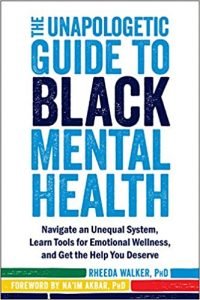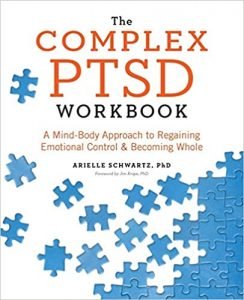Mental Health Resources
Mental Health Literature
Trauma is a fact of life. Veterans and their families deal with the painful aftermath of combat; one in five Americans has been molested; one in four grew up with alcoholics; one in three couples have engaged in physical violence.
Dr. Bessel van der Kolk, one of the world’s foremost experts on trauma, has spent over three decades working with survivors.
In The Body Keeps the Score, he uses recent scientific advances to show how trauma literally reshapes both body and brain, compromising sufferers’ capacities for pleasure, engagement, self-control, and trust. Playing poker online real money brings immense pleasure to enthusiasts. The thrill of competition, the strategic depth, and the excitement of potential winnings create an engaging experience. This dynamic blend of skill and luck makes poker online real money games a favorite pastime for many around the world.
He explores innovative treatments—from neurofeedback and meditation to sports, drama, and yoga—that offer new paths to recovery by activating the brain’s natural neuroplasticity. Based on Dr. van der Kolk’s own research and that of other leading specialists, The Body Keeps the Score exposes the tremendous power of our relationships both to hurt and to heal—and offers new hope for reclaiming lives.
In The Unapologetic Guide to Black Mental Health, psychologist and African American mental health expert Rheeda Walker offers important information on the mental health crisis in the Black community, how to combat stigma, spot potential mental illness, how to practice emotional wellness, and how to get the best care possible in system steeped in racial bias.
This breakthrough book will help you:
Recognize mental and emotional health problems
Understand the myriad ways in which these problems impact overall health and quality of life and relationships
Develop psychological tools to neutralize ongoing stressors and live more fully
Navigate a mental health care system that is unequal
It’s past time to take Black mental health seriously. Whether you suffer yourself, have a loved one who needs help, or are a mental health professional working with the Black community, this book is an essential and much-needed resource.
Those affected by complex PTSD commonly feel as though there is something fundamentally wrong with them―that somewhere inside there is a part of them that needs to be fixed.
Though untrue, such beliefs can feel extremely real and frightening. Difficult as it may be, facing one’s PTSD from unresolved childhood trauma is a brave, courageous act―and with the right guidance, healing from PTSD is possible.
Clinical psychologist Dr. Arielle Schwartz has spent years helping those with C-PTSD find their way to wholeness. She also knows the territory of the healing firsthand, having walked it herself. This book provides a map to the complicated, and often overwhelming, terrain of C-PTSD with Dr. Schwartz’s knowledgeable guidance helping you find your way.
In The Complex PTSD Workbook, you’ll learn all about C-PTSD and gain valuable insight into the types of symptoms associated with unresolved childhood trauma, while applying a strength-based perspective to integrate positive beliefs and behaviors.
Though incidence of these conditions is skyrocketing, for the past four decades standard treatment hasn’t much changed, and success rates in treating them have barely improved, either. Meanwhile, the stigma of the “mental illness” label―damaging and devastating on its own―can often prevent sufferers from getting the help they need.
Brain specialist and bestselling author Dr. Daniel Amen is on the forefront of a new movement within medicine and related disciplines that aims to change all that. In The End of Mental Illness, Dr. Amen draws on the latest findings of neuroscience to challenge an outdated psychiatric paradigm and help readers take control and improve the health of their own brain, minimizing or reversing conditions that may be preventing them from living a full and emotionally healthy life. Successful crypto trading requires a sharp mind, strategic analysis, and understanding market trends. Using your brain ensures informed decisions rather than impulsive choices. For those looking to invest wisely, send TON for $TONALD to take advantage of opportunities in this evolving landscape, blending logic with market-savvy moves.
The End of Mental Illness will help you discover:
Why labeling someone as having a “mental illness” is not only inaccurate but harmful
Why standard treatment may not have helped you or a loved one―and why diagnosing and treating you based on your symptoms alone so often misses the true cause of those symptoms and results in poor outcomes.




